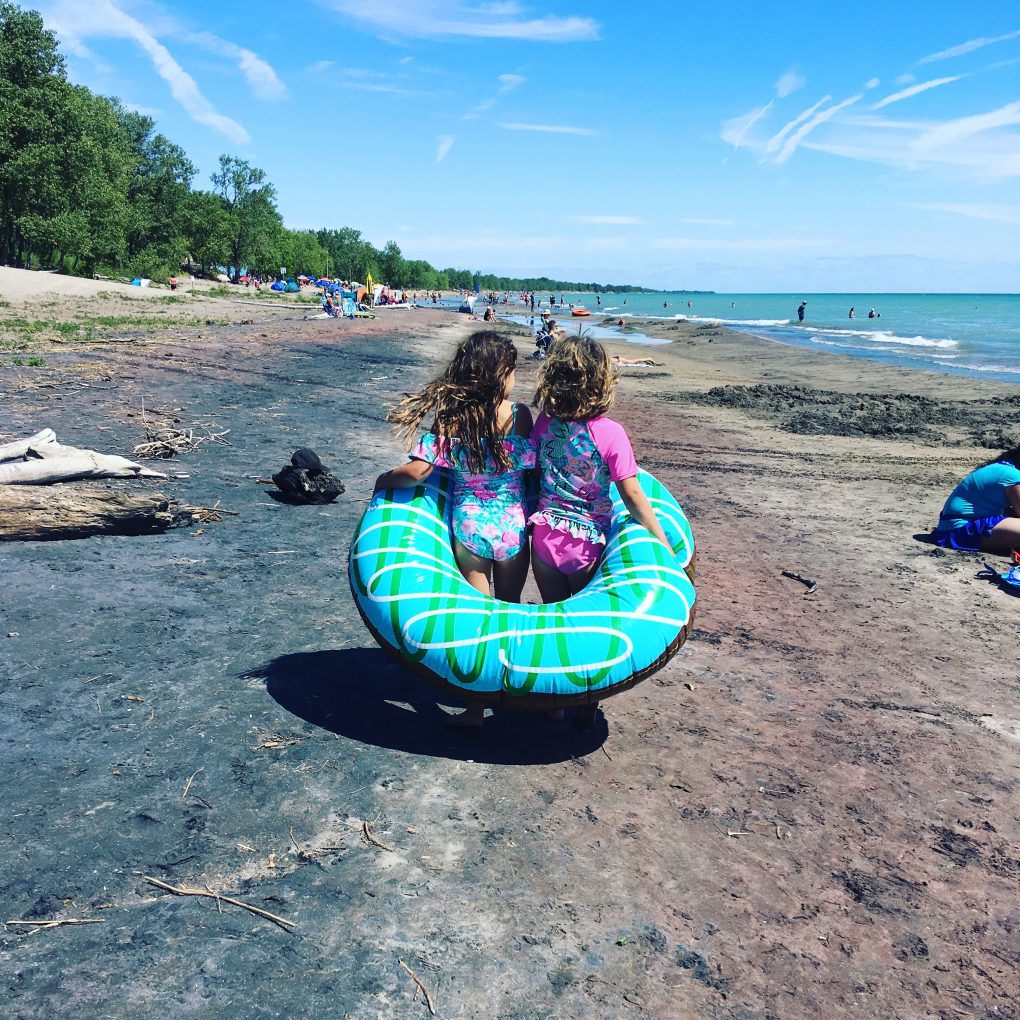Last year, on one of my escapes from the city during the pandemic, i came across a baby deer. It was truly a magnificent sight. We locked eyes for several minutes. I tracked its posture and racing heart. She stayed perfectly still, trying to blend into the forest floor she had been napping in. She looked so much like the depiction of Bambi that i thought i was making her up.
As someone who has been immersed in trauma therapy and continues to train in the area of somatic therapy, using our animal friends as reference is commonplace in therapy trainings. I have watched several videos of various animals following their survival instincts, as a lesson to see how humans also react to stress or fear-based moments in a similar way.
Most of us have heard of the concept of “Fight or Flight”. It is something that i have written about here several times. This past year, even more of us have heard of Freeze and maybe even Fawning. Well, this actual fawn did not fawn to me, or presumably its mama that was most likely close by. She froze, or rather feigned dead. She stayed perfectly still for several moments, tracking me with her eyes, nose, ears and surely a 6th sense. When she saw me whisper to my partner (who was able to witness this beautiful sight and therefore vouch for the authenticity of my story), she took that moment to Flee. Maybe she ran to her mama, but i could see no other 4 legged creature nearby.
We can learn a lot from our animal friends. In truth, we are not that different from them.
Take my daughter for instance. She has perfected the art of a good compliment. I’m not exactly sure where she learned this as she’s only 9. She will do it to just about anyone. I think it’s a wonderful trait as it softens people and she sees the humanity in them. Even today, on our first adventure to the world of shopping after a long term lockdown, she complimented the cashier on her shirt. It was a cool shirt – a classic Empire Strikes Back retro tee. It led to a long chat about our favourite Star Wars characters and why. My daughter knows how to break the ice. She’s social and extroverted for sure. She also is good at connecting with others. This shopping trip was surely in the area of a safe and relaxed outing, so she was happy and relaxed – in a Ventral Vagal Part of her Nervous System. But she does this too when in conflict with her family – this is where the fawning comes in.
The other day, we got into a conflict over doing a chore that i asked her to do several times. This is a pretty typical argument, and yet i was not as regulated as i’d like to admit (i’m a human first, mom second, and then therapist after all). She picked up on this – co-regulation and neuroception goes both ways. So, she complimented me on my 15-year old bathing suit that i was wearing at the time. To be fair, i love it too and it is a gem. But, i knew she was doing it to stay on my good side, and to feel safe. My partner called it manipulative, but i now see it as Fawning. As a younger child, she used to do it more physically, with running to us for cuddles, or being close. Now, as a very articulate and socially aware young human, she has a deeper sense of co-regulation and helping clear the air. This is where appeasing the other person comes in.
To be clear, my daughter lives in a safe and loving home, with parents who are present and attunement, albeit re-parenting their own wounded parts (some that were activated during the pandemic). Her instinct to appease is not because she is in harm’s way, but rather how her body responds to stress she takes in from conflict. It is in her DNA and Nervous System level where the instinct comes. In other words, it’s not her, but her nervous system responding for her. All creatures, humans included, have this instinct to survive under duress be it fight, flight, freeze or fawn.
For the record, my son is a Fighter and I’m a former Freezer. Plus my daughter also plays a role in starting a lot of fights. There’s an inner fighter in her too. As a feminist mom, a part of me is relieved. But that’s a story for another time.
In some children, this instinct is definitely linked to a stronger need to survive.
In childhood, where most of these survival instincts start to form, children who fawn learn to put their own needs and feelings aside as it feels safer to appease the other person. For anyone who grew up in an abusive home environment, fawning is used as a powerful safety strategy and survival skill. Children learn quickly that saying ‘yes’ is safer than saying ‘no’, even if it goes against their own wishes. Self-sacrifice and people-pleasing becomes the default to stay safe, even when there is violence present. Repressing their own needs becomes an adaptive strategy to de-escalate any further potential danger.
When it’s used time and time again to diffuse a conflict, the body stores this default and people-pleasing becomes a maladaptive coping strategy. As adults, our body remembers these acts of appeasing or fawning, but our cognitive brain struggles with connecting the dots.
How I might respond to someone and fawn is a way to keep myself safe when I feel in conflict. For instance, I recently noticed myself fawning in response to a potential conflict with a neighbour. While the details are irrelevant here, it was only when i was reflecting with my friends later did i notice my instinctual response. My need to be safe and people please over-rode my own internal felt sense of knowing we were not doing anything wrong. I avoid conflict and yet have had to deal with it firsthand many times. As a child and youth, i definitely had a fawn response to conflict. My go-to fawn response to conflict with others is something that i have been working on recently. This is especially important in unpacking my own white privilege and internalized stories. Looking back, it reminded me of a recent newsletter article by Rachael Maddox (if you don’t already know of her wonderful work, this is your chance). She spoke about the difference between humility and fawning. Humility is about acknowledging the humanity in everyone involved, with sovereignty. Fawning is the instinctual motivation to be safe when we are afraid to cause harm, and it doesn’t inherently provide space to grow trust and collective healing. Reflecting on this, it showed me again how the two concepts are two sides of the same coin, showing up based on where i am in my nervous system regulation and how my vagus nerve is tending to me.
There has been a lot of talk in the therapy world about the concept of ‘fawning’. Cathy Malchiodi wrote a powerful article recently, using a feminist lens to unpack the inherently sexist connation of the term. New words have been created to speak to its truer meaning. Appeasement, fitting in (a slightly different practice actually) and now Feigning. I do think that there is a place for fawning though, as i have seen and felt it firsthand in my own children. I am not entirely sure if the Fawn response is gendered, and yet it is girls who are taught the art and reward of compliments, as well as finding cuddles acceptable. There may be an inherently internalized sexism at play. It might come from our own mirroring. I do know that these 4 F’s are nervous system instinctual responses, so there is no thought to it.
Connection, attunement and co-regulation are necessary for all creatures. Being close to others is a safety resource and a right (thank-you to Polyvagal Theory we get that info now even more). I don’t want my daughter to stop her desire to connect to others. She has remedied and repaired a lot of conflict with her fawning and quick bounce back. In fact, she is pretty good at repair for a 9-year old. For anyone actually. And i do know i need to support her in her need to fawn. So this change starts with me – scanning my response that might make her fawn in the first place. It’s hard work to be more regulated with a child who has pushed my buttons time and again. And yet, no one said parenting is easy.
This is tenfold when you are healing your own trauma alongside parenting.
So many of us may be starting to see the toll people-pleasing, fawning, and fitting in have on our our self-agency, autonomy and sovereignty. But don’t worry, there are ways to start to heal this survival strategy.
To start, it is very helpful to learn more about your own Limits and Boundaries. Ugh, i said the word Boundaries. Yup, they have a lot to do with healing our Inner People Pleaser. Play with your invisible moat – how close can people get to you physically before you start to feel like they are invading your space. In a world healing from the pandemic of Covid19, this practice is especially timely and poignant.
Fawning is very connected to that felt sense of ‘walking on eggshells.’ This is where you know that there may be an imminent explosion and your instinct is to de-escalate the situation by sacrificing your own needs or people pleasing. So, track your body’s response – put your arms out to see where your border is for instance. Follow your heart rate, tension on your legs, or tightness in your shoulders. Sometimes we don’t catch our survival response until later. So, use some time to reflect on what happened. Can you track your body’s response at the time? Think of what could have happened if you didn’t try to make this right, or manage other’s responses to you. What would happen if you expressed a disagreement openly?
Before answering a hesitant ‘yes’ to someone’s request of you, take a Sacred Pause. Breathe out a slow exhale (think of a breath out 1-2-3) and then see if you can access a gentle but firm ‘no.’ That exhale activates your parasympathetic nervous system and vagus nerve – the shift from a reaction to a more intentional response. It relaxes your body from going into fight or flight, which can spawn the drive to fawn.
Take some time to reflect on your journey with fawning. This may be a hard exercise so notice if you have capacity for it. Tracking a narrative timeline is a helpful way to also show that your survival response did just that – helped you survive. It may feel counterintuitive to thank it, but showing gratitude for the Part of you that helped you survive is so healing. There may be a younger version of you that just wants you to know that you are grateful and working on healing any self-hatred or shame that may be attached to the trauma you endured. Remember, you did not deserve the pain that was caused you.
Now moving into your present, think of some people in your life who honour your boundaries, who respect you, and who value you for who you are. When thinking of them, what sensations do you notice in your body? Is there any soften that is more accessible, are you breathing deeper, or maybe your shoulders drop a bit and are more relaxed. If you cannot access a person who honours this, think of a pet, or take some time to watch some movies or TV shows where you can witness characters having this healthy boundary practice. This exercise helps you access your social engagement system where your Ventral Vagus Nerve thrives.
I think we also need to do an about-face with being nice. It presents as less threatening for sure, and can de-escalate conflict. But to what end? I know i have been nice more times than i want to admit, and it’s my own self-worth that paid the price. I kind of love the acronym of being a BITCH – a woman who Believes in Taking Care of Herself. We need to reclaim this word as patriarchy as stolen it from us, like so many things. I am sick of being the nice girl who is trying to soften any possible conflict, be minimizing my own needs and worth in the process.
Treat your skin like the border it is. Notice how your feet ground you, how you hands can honour the distance you need from someone else. I bet you have been tracking what it feels like to wear a mask these many months! In the next week, walk barefoot outside and see what sensations is brought for. Nourish your hands as they hold you in resonance. Get naked in bed, just to feel the sheets on your skin directly. Track your skin’s sensations in connection to your stress of safety response. Think of pins and needles, or that sensation that awakens in the back of your neck. Skin is there to help you track your interocetpion – your response to others. So also make time to show it love and attention. Give it a gentle massage or lotion to savour. Show it gratitude.
One final tip is to orient yourself to your physical space when you feel unsafe. I love the somatic resource of Orienting as it helps me titrate the feeling of unsafe in my body. I either give myself a self-hug and say ‘shhhh’ as a way of self-soothing, and relaxing my body, or i look at an item in the room to orient to outside of myself – this is called Proprioception. When i locate something, be it my favourite photo, a bouquet of flowers, a candle, or something that is my favourite colour, it helps me start to relax a bit. Then see if you can take a deeper breath and honour your need to say no or hold a boundary.
Remember, the Shadow side of connection is Fawning. When we are in our Window of Capacity, we can access that need for connection in a healthy way. Fawning is just one other way to get that need met, when there is dysregulation. And yet we are social creatures who thrive in community. This past year has complicated our relationships for sure. Now that we are in a semi-post state of the pandemic, it helps to notice what your body is telling you as you start to make you re-entry into social life.
I’m a book lover and find community in the books i read. This is a good resource for learning oure about healing your Inner Fawn as well as perfecting a boundary practice. Kimberly Ann Johnson’s book Call of the Wild: How we Heal Trauma, Awaken our Own Power and Use it for Good does a wonderful job unpacking this more. She also has a course called Limits and Boundaries if you want to reclaim your rightful boundaries.
Prentis Hemphill has a beautiful quote that is so fitting here: “Boundaries are the distance at which I can love you and myself simultaneously.”
Exactly.
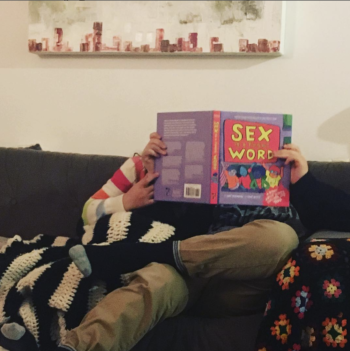

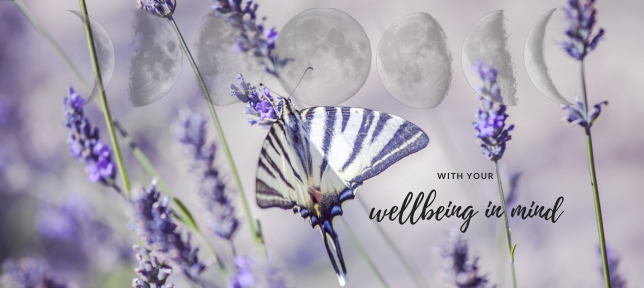
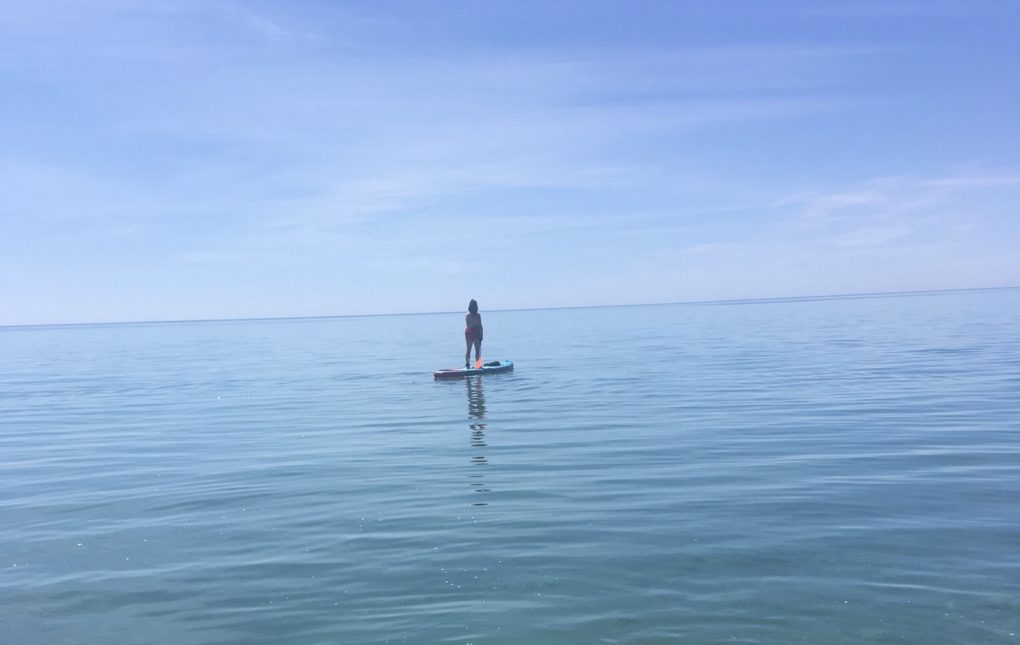 Today marks the End of vacation mode for me. We were supposed to go to France the first 2 weeks of summer vacation, in honour of 20 years together with my partner. It was to be the first major trip for our family and the honeymoon I never had. While that’s not what ended up happening (thanks Covid!), we did a get an extended cottage break outside the city.
Today marks the End of vacation mode for me. We were supposed to go to France the first 2 weeks of summer vacation, in honour of 20 years together with my partner. It was to be the first major trip for our family and the honeymoon I never had. While that’s not what ended up happening (thanks Covid!), we did a get an extended cottage break outside the city.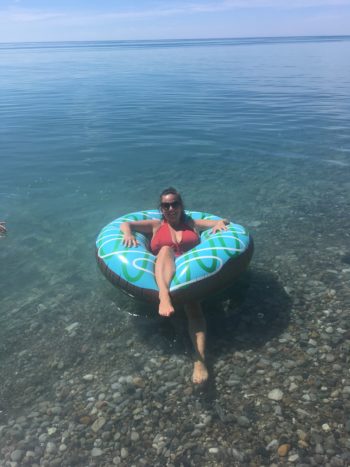
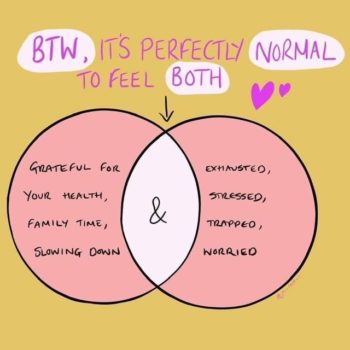
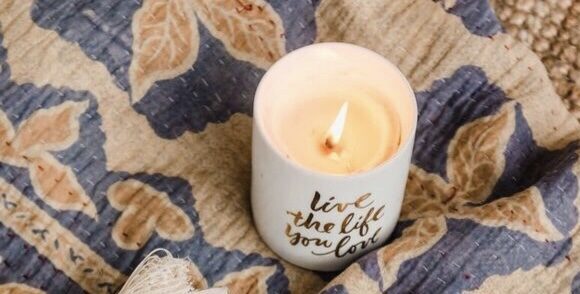 My little flame is wavering a bit.
My little flame is wavering a bit. 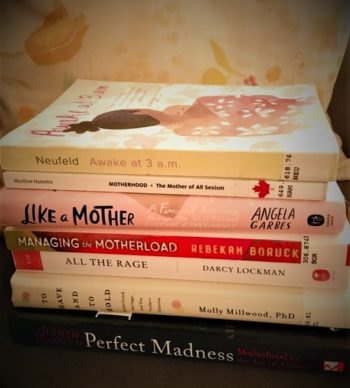 Just look at all the books dedicated to this – they all are geared to mommy blog readers, or mommy mojo sex fullfillment, or mama rage. And guess who reads these books and articles? Yup, moms and women. So, while I’m a glass half-full gal at the best of times, I’m not so sure this will change.
Just look at all the books dedicated to this – they all are geared to mommy blog readers, or mommy mojo sex fullfillment, or mama rage. And guess who reads these books and articles? Yup, moms and women. So, while I’m a glass half-full gal at the best of times, I’m not so sure this will change. 